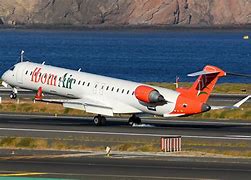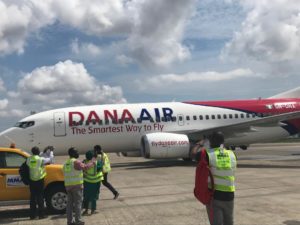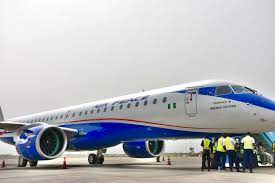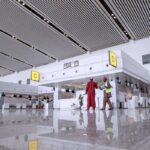
Low passenger traffic with accompanying low fares that follow the Christmas season in the previous years has not been witnessed this year, as the cost of tickets are still very high, despite increase in capacity by airlines.
With the increase in capacity, which makes more seats available for domestic air travel, industry observers are of the view that the relatively low demand should have pushed down the fares.
THISDAY investigations disclosed that the base fare for many airlines is still N50, 000, except the low cost carrier, Green Africa, whose fare starts from N35, 000 and Dana Air whose base fare is N41, 000, despite the fact that about three new airlines have received certification to begin schedule passenger service, yet operators are not persuaded by the stiff competition ahead to lower their fares.
“Base fare is dependent on when you buy your ticket. It starts from that N50, 000 and could rise to N96, 000 to N100, 000; while business class rises from N96, 000 to N150, 000 depending on demand by passengers. Passenger traffic is still high for such destinations as Asaba, Owerri, Uyo, Abuja, Akure, Enugu and even Anambra airport at Umueri, where Air Peace and United Nigeria Airlines operate three weekly flights to,” a travel protocol official told THISDAY.
Senior member of Airline Operators of Nigeria and the President/CEO of Top Brass Aviation Limited, Captain Roland Iyayi, told THISDAY on Wednesday that the reason why airfares are still high despite the low season is because of cost of operation, saying that aviation fuel is costing more.
“There is high cost of maintenance, there is high cost of aviation fuel and cost of foreign exchange is still very high; so, the airfares are reflective of what is in the market. Any airline that sells ticket at less cost is waiting for accident to happen. You cannot operate below your cost of operation. Although there are indications that there should be high capacity but the truth is that capacity has reduced. Azman Air has stopped flying due to maintenance issues, Air Peace has many of its aircraft due for maintenance or return to service from maintenance but because of scarcity of foreign exchange the aircraft are not ferried back to the country to start flying. These are factors that gave rise to the high cost of tickets,” Iyayi said.
He also remarked that the high cost of aircraft insurance contributes to the high fares, noting that Nigerian airlines are exploited by a cartel when it comes to insurance, a cartel that is made possible by the collusion between local and foreign insurers, so Nigerian carriers always insure their aircraft at high cost.
According to Iyayi, there are two insurance bodies where airlines must insure their aircraft; one is Russia, while the other is Lloyd. Due to global politics and current crisis in Ukraine, airlines cannot insure their equipment with Russia insurance firms, thus leaving Lloyd as the only choice.
The President and CEO of Top Brass Aviation also explained that Nigerian carriers pay more for insurance because Nigeria is designated as hostile environment for airline operations and suggested that the Nigeria Civil Aviation Authority (NCAA) should take it as a huge responsibility to counter such impression about Nigeria with data, which confirms that Nigeria airspace is safe. He said that this can be done by publishing how many aircraft fly in Nigeria’s airspace for certain period and the number of incidents that happened during such period, noting that Nigeria has maintained high standard of safety without major accident for a long time; therefore, it is wrong to still designate Nigerian environment as harsh for airline operation.
“Insurance companies milk us because of the assumed unsafe airspace, so NCAA should show insurance companies Nigeria safety data; not just talking but the data will show that there is low risk flying in Nigeria. In Nigeria insurance is a cartel, fuel supply is a cartel; airlines have to break this cartel for fares to come down,” he said.
On his part, the Managing Director and CEO of Aero Contractors, Captain Ado Sanusi, told THISDAY that cost of operation has increased because of the cost of aviation fuel, forex and high insurance premium.
“Naira is about 750 to $1, aviation fuel costs about N600 to N700 per litre and these are subject to availability; so, cost of operation is still high. Airfares will continue to be high. It is not only that the cost of all these is high, another challenge is their availability. Aviation fuel may not be available because the importers do not have dollars to pay and import the product. The cost of insurance is going up, it is not coming down because our environment is still considered harsh for flight operations. These are the factors,” Sanusi said.

On the base fare, Sanusi said every company had its own financial module, which determines its operation, saying that a company may choose to own its aircraft or lease it but the major challenge is the cost of obtaining credit facility from the banks with interest rate of 25 per cent to 30 per cent.
“Even a short-term loan at 28 per cent, I can’t make money from such loan. These are some of the factors that make airline operation difficult and flight tickets high. We also have to consider the economy of the country. With high inflation, you expect everything in the economy to be affected,” he added.
In his views, airfares are driven up by certain realities and even low passenger traffic cannot bring down the fares despite competition.






